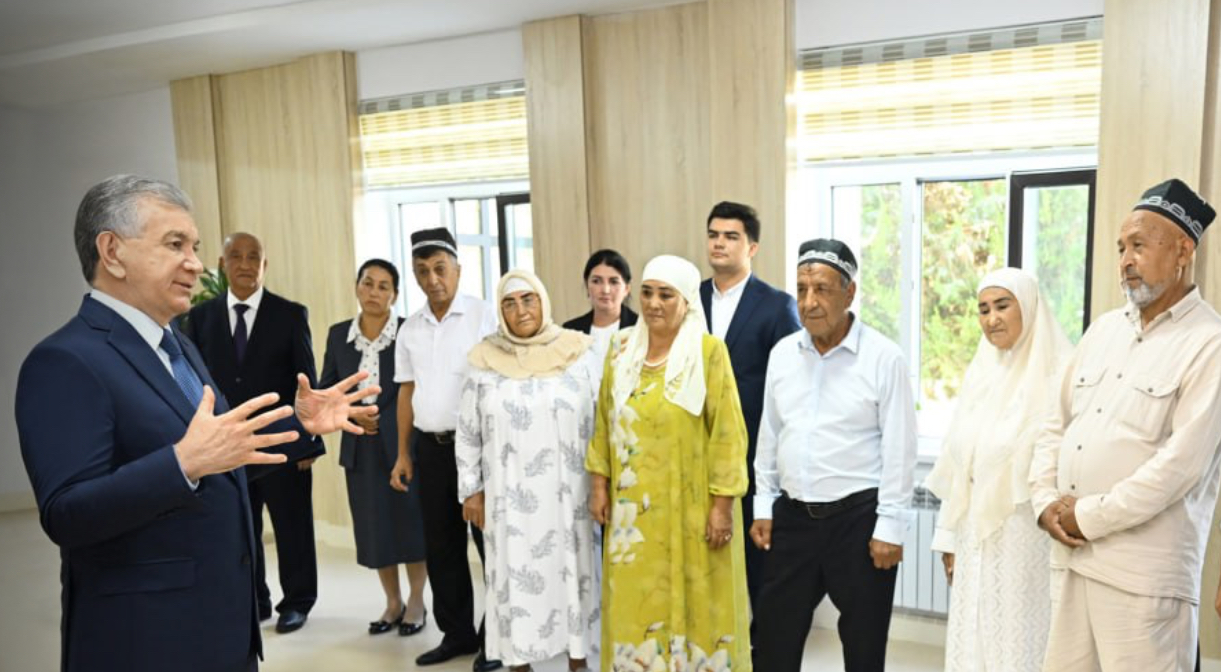Uzbekistan’s President, Shavkat Mirziyoyev has set his country the goal of doubling the size of its economy by 2030. The Executive Director of the Development Strategy Centre in Tashkent, Eldor Tulyakov, has been in Brussels to explain how the Uzbekistan 2030 Strategy will deliver health, education and other benefits to the people – writes Political Editor Nick Powell.
The Uzbekistan 2030 Strategy was adopted by presidential decree on September 11. It’s a detailed document that sets out 100 essential goals but as Eldor Tulyakov explained in his presentation at the Uzbek Embassy, they are grouped into five priority areas.
These are creating the stability to allow individuals to realise their potential, ensuring that economic growth benefits the wellbeing of the population, conserving water resources and protecting the environment, ensuring the rule of law with a public administration at the service of the people and a consistent continuation the principle that Uzbekistan will be a safe and peace-loving state.
Based on past experience, public engagement and international expertise, the Strategy’s essential idea is to become one of the high and middle-income countries through stable economic growth. This will enable Uzbekistan to develop an education, health and social protection system that fully meets people’s needs and international standards; a fair and modern state at service of the people, ensuring the country’s sovereignty and security.
The target of doubling the size of the economy in the next seven years implies growing annual GDP to $160 billion and increasing per capita annual income to $4,000. Such a target requires macroeconomic stability, with economic development that achieves the necessary level of energy, water and infrastructure resources, as well as a favourable investment and business environment.
In health, medical services will be brought closer to the population, with primary healthcare providing the majority of medical interventions. 350,000 patients with diabetes and 1.5 million patients with cardiovascular diseases will be treated. Selective screening tests for hereditary diseases will be increased by at least 50 per cent, halving the incidence of genetic disorders in children.
Preventative treatments will include the free provision of micronutrient powder for infants, special preparations for preventing parasitic infestations, iodine preparation for young children and multivitamins, iron and folic acid for women. As a result, the spread of infectious and non-infectious diseases is expected to drop by 20%.
In preschool education, rapid progress has already been made, it now reaches 72% of children, up from 27% in the last five years. The number of preschool providers rose from 5,211 to 29,420. Under the Uzbekistan-2030 Strategy, it is planned to reach 100% of preschool age children.
Eldor Tulyakov explained that a system has already been created for direct communication between state and people, offering effective, positive and quick solutions to human problems. This has changed citizens’ attitude to state bodies, increasing their active involvement and confidence in reforms. Most importantly, there are growing opportunities to raise issues and concerns.
It’s against this background that the Republican Commission on implementing the Uzbekistan 2030 Strategy was established.
The commission tracks the implementation of reforms by monitoring people’s opinions as well as measuring the achievement of specific goals. The Development Strategy Centre will be launching a special online portal, giving everyone the opportunity to leave their opinions and make suggestions about the implementation of the Strategy. The results will be submitted to the Republican Commission every month.
As Eldor Tulyakov put it, the proper implementation of the Uzbekistan 2030 Strategy will not only strengthen the country’s position and reputation in the eyes of the international community but “glorify human dignity”.


















































